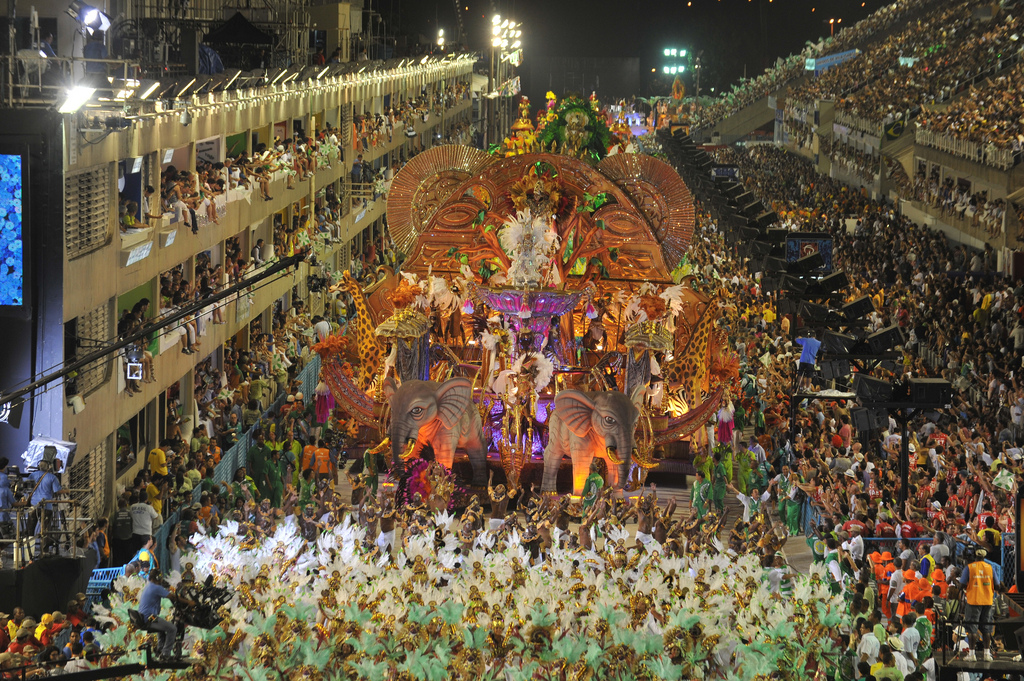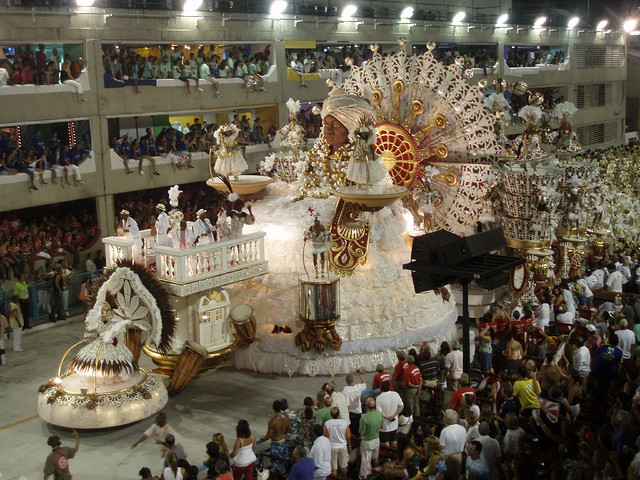Carnaval, Carnival, is a movable holiday that is celebrated annually in Brazil forty days before Easter. This year it will take place between Saturday, February 14 and terça-feira gorda, Fat Tuesday, February 17.
Carnaval is taken so seriously in Brazil that it even has uma escola de samba, a samba school.
These schools don’t teach people how to samba, of course—you have to be born com o samba nos pés, with feet for samba, as they say, to know how to dance that. What these escolas de samba do is they organize the beautiful parades that take place on the streets or sambódramos, sambadromes, venues especially created for the desfiles, pageants.
A escola de samba is like a club with members, managers, and a huge fan base. To join one, you have to pay an annual membership, and then go to regularly scheduled rehearsals. They are public associations and commonly represent a neighborhood or area of the city.
Samba schools compete with each other for the title of Campeã do Ano, champion of the year, and they also receive a sum of money from TV and other media related coverage and sponsorships deals.
Escolas de samba have their own cores, colors, estandartes, banners, mascotes, mascots, and rei e rainha, king and queen. Every year they organize their parades and every year it’s different. Each escola de samba creates um enredo, a theme, com samba-enredo, an original musical score, fantasias, costumes and carros alegóricos, floats.
Each section of the pageant helps tell the story or alegoria, allegory: the floats and costumed dancers and performers tell the story visually, while a bateria, musicians with percussion instruments, and cantores, singers sing the theme. All this creates a majestic moving and dancing tableau that can run for hours and be miles long.
Escolas de samba originated in Rio de Janeiro in the 1920s as simple parades of people who had real love for samba, and dedicated all their spare time to composing and arranging these desfiles. Today it is a multi-million dollar industry with each club vying to get the most famous actor, musician, athlete or celebrity to join their ranks, investing huge sums on production and marketing. Tickets to the parades are sold a year in advance and prices for camarotes, boxes, can reach the stratosphere.
In spite of all the hype, money and serious marketing that go into these events, they are only successful because the spirit of each club and parade is still dominated by o povo, the people, who love samba and live for this day.

